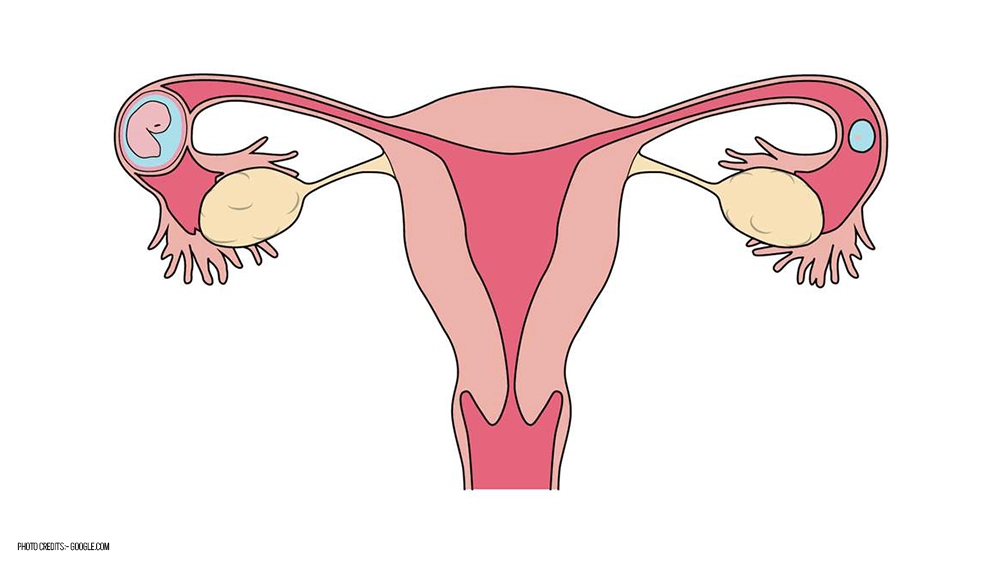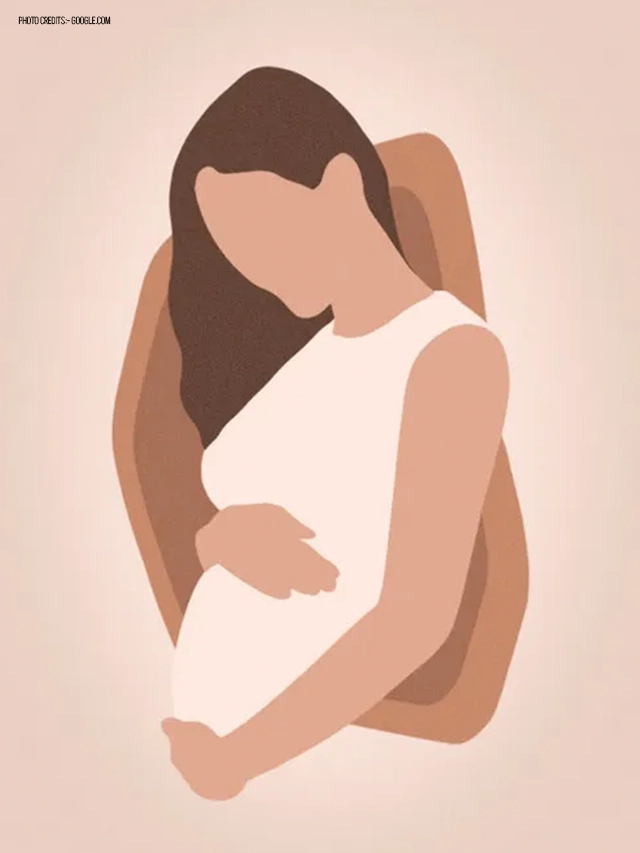
HEALTH BLOG
What are The Signs of An Ectopic Pregnancy
-
Rahul Priydarss
Signs of an ectopic pregnancy are crucial to recognize early for timely medical intervention. Common symptoms include sharp abdominal pain, vaginal bleeding, dizziness, and shoulder pain, which could indicate this serious condition. If left untreated, an ectopic pregnancy can lead to life-threatening complications. Understanding the warning signs and seeking prompt medical attention is essential to prevent further health risks. In this article, we discuss the key signs of an ectopic pregnancy, risk factors, diagnosis, and treatment options to help you stay informed and protect your health.
Introduction To Signs of An Ectopic Pregnancy:
The signs of an ectopic pregnancy can range from sharp abdominal pain to light vaginal bleeding and shoulder pain. Other common symptoms include dizziness, fainting, and discomfort during urination. These symptoms arise when a fertilized egg implants outside the uterus, usually in one of the fallopian tubes, but can also occur in other parts of the reproductive system such as the ovaries or cervix. An ectopic pregnancy is a serious medical condition, and knowing these symptoms is crucial for early detection and treatment.
What is Ectopic Pregnancy:
An ectopic pregnancy is a condition where a fertilized egg implants outside the uterus, preventing normal pregnancy development. While a healthy pregnancy occurs when the embryo grows within the uterine cavity, an ectopic pregnancy usually happens in one of the fallopian tubes, also known as a “tubal pregnancy.” Although less common, ectopic pregnancies can also occur in other areas like the ovaries, cervix, or even the abdominal cavity. Regardless of where the ectopic pregnancy occurs, it is a life-threatening condition if left untreated, as the embryo will not survive, and it can cause severe complications for the mother.
This condition is considered rare, affecting about 1 in 50 pregnancies, but the consequences can be grave if it is not caught early. The problem arises because the fallopian tube, or any other area outside the uterus, cannot accommodate a growing embryo. As a result, the tissue stretches and may rupture, leading to dangerous internal bleeding and other complications. This makes recognizing the signs and symptoms of an ectopic pregnancy vital, as early detection is key to ensuring proper treatment and preventing long-term health issues. Even though ectopic pregnancy often presents clear symptoms, some women may not experience obvious signs, which is why it’s important to pay attention to your body during early pregnancy.

Table of Contents
1. Sharp or Intense Abdominal and Pelvic Pain:
One of the most recognizable symptoms of an ectopic pregnancy is sharp abdominal or pelvic pain, which often begins early in the pregnancy. This pain is typically localized on one side of the abdomen, corresponding to the affected fallopian tube. For example, if the embryo is implanted in the right fallopian tube, the pain will generally be felt on the right side. This sharp, stabbing pain can come on suddenly or gradually worsen as the pregnancy progresses.
This pain is quite different from the cramping some women experience during early pregnancy or menstruation. In an ectopic pregnancy, the pain tends to be more intense and may not subside. It can also be exacerbated by movement or pressure. The pain may even radiate to other areas like the lower back or shoulders, which is an indication that internal bleeding may be present.
Differentiating normal pregnancy symptoms from those of an ectopic pregnancy can be challenging for some women, especially during the early stages. However, if you experience sharp, persistent pain that does not go away or worsens over time, it’s crucial to consult a healthcare professional as soon as possible. Left untreated, the growing pregnancy can cause the fallopian tube to rupture, leading to severe complications and requiring emergency surgery.
Additional Details:
- Some women might experience referred pain, which is pain felt in areas other than where the issue is actually occurring. For instance, if there is significant bleeding within the abdomen, this can irritate the diaphragm, which may cause shoulder pain (a classic sign of internal bleeding from an ectopic pregnancy).
- It’s essential to distinguish between general discomfort or cramping during normal pregnancy and the sharp pain indicative of an ectopic pregnancy. General cramps usually feel more like mild pressure, while ectopic pregnancy pain is sudden, intense, and usually sharp.
2. Light or Irregular Vaginal Bleeding:
Another warning sign of an ectopic pregnancy is vaginal bleeding, which often differs from the typical menstrual cycle. In the early stages, women might mistake this for implantation bleeding or spotting, which can occur in normal pregnancies. However, the bleeding associated with ectopic pregnancies is often lighter, irregular, and may appear as brown or dark red. Some women describe it as looking like coffee grounds. This type of bleeding typically occurs when the growing embryo causes irritation or damage to the lining of the fallopian tube or another part of the reproductive system.
Unlike the heavier bleeding associated with a miscarriage, ectopic pregnancy bleeding tends to be lighter but more persistent. If you notice any irregular vaginal bleeding, particularly if it is accompanied by other symptoms such as abdominal pain, it’s important to see your doctor. Your healthcare provider may perform an ultrasound and blood tests to confirm whether or not an ectopic pregnancy is present.
Additional Details:
- In some cases, there may be no bleeding at all, which is why it’s important to pay attention to other symptoms.
- Women experiencing ectopic pregnancy might notice that the bleeding doesn’t follow a typical pattern. For instance, it might stop and start again unexpectedly, or it may be lighter than what they are used to during a period.
3. Shoulder Pain:
Shoulder pain, while seemingly unrelated to pregnancy, can be a significant indicator of an ectopic pregnancy. This symptom typically occurs when internal bleeding from a ruptured fallopian tube irritates the phrenic nerve, which is connected to the shoulder region. Shoulder pain related to an ectopic pregnancy often feels more intense when lying down and is different from typical muscle soreness or injury-related pain. It’s important to note that shoulder pain can be a sign of advanced complications, particularly when paired with other symptoms such as dizziness, fainting, or sharp abdominal pain.
If shoulder pain occurs without any apparent injury or strain and you are pregnant, this is a red flag that something more serious may be happening internally. In the context of an ectopic pregnancy, this pain could signal internal bleeding or rupture, both of which require immediate medical attention.
Additional Details:
- Shoulder pain caused by internal bleeding is referred pain, meaning the pain is felt in one part of the body (the shoulder) but originates from another area (the abdomen).
- In some cases, this type of pain may be misdiagnosed or overlooked, so it’s crucial to bring this symptom to the attention of your healthcare provider, especially if you are in the early stages of pregnancy.
4. Dizziness or Fainting:
Dizziness, lightheadedness, or fainting can occur as a result of blood loss, which is a serious sign of an ectopic pregnancy. As the embryo grows, it can cause the fallopian tube to rupture, leading to internal bleeding. When this happens, blood volume decreases, causing a drop in blood pressure. This results in dizziness or fainting episodes. These symptoms are particularly dangerous, as they suggest that the ectopic pregnancy has progressed to the point where immediate medical intervention is needed to prevent life-threatening complications.
If you feel lightheaded, weak, or faint while pregnant, this should be taken very seriously, especially if accompanied by abdominal pain or vaginal bleeding. These symptoms might indicate internal bleeding, and you should seek emergency medical care immediately.
Additional Details:
- Some women may experience shortness of breath or an inability to stand up without feeling weak or dizzy. These symptoms are due to the decreased blood flow caused by internal bleeding.
- Fainting, while a relatively rare symptom, is one of the most serious indicators that an ectopic pregnancy has progressed and requires urgent medical attention.

5. Bowel and Urinary Symptoms:
While less common, some women with an ectopic pregnancy may experience bowel and urinary discomfort. This can include pain during bowel movements, constipation, or difficulty urinating. These symptoms occur when the growing embryo exerts pressure on the bladder or intestines. It’s important to note that these symptoms are not exclusive to ectopic pregnancies, as many women experience changes in bowel and urinary habits during pregnancy. However, when paired with other signs such as sharp pain or bleeding, they could indicate an ectopic pregnancy.
If you experience persistent bowel or urinary issues, particularly with other symptoms of ectopic pregnancy, it’s important to bring these concerns to your healthcare provider. While these symptoms may seem unrelated, they can help doctors make a more accurate diagnosis.
Additional Details:
- Some women report feeling a sense of pressure or fullness in the rectal or bladder area, which can make bowel movements or urination uncomfortable.
- These symptoms, while nonspecific, could signal a problem with the pelvic area due to the ectopic pregnancy growing outside the uterus.
6. Missed Period:
Although a missed period is often the first indicator of a pregnancy, it’s important to note that a missed period can also occur in an ectopic pregnancy. However, unlike a normal pregnancy, an ectopic pregnancy often comes with other concerning symptoms such as pain, light bleeding, or unusual discomfort. In some cases, a woman may believe she is experiencing a normal pregnancy due to a missed period, only to later discover that the pregnancy is ectopic through additional symptoms.
If your period is late, and you are experiencing sharp abdominal pain, light vaginal bleeding, or other warning signs, it is crucial to get checked by your doctor. Even if you haven’t noticed any severe symptoms, it’s always better to rule out the possibility of an ectopic pregnancy, especially if you have risk factors such as a history of pelvic inflammatory disease (PID) or previous ectopic pregnancies.
Additional Details:
- Some women may not experience a missed period and might mistake ectopic pregnancy symptoms for menstrual irregularities. This is why it’s important to pay attention to other physical signs in addition to tracking your period.
7. Positive Pregnancy Test:
While most women with an ectopic pregnancy will still have a positive pregnancy test, the hCG (human chorionic gonadotropin) levels might not rise as quickly as they would in a normal pregnancy. If you suspect you are pregnant but notice that your symptoms aren’t consistent with what you expect in early pregnancy, or if your symptoms become concerning, it’s important to see a healthcare provider. An ultrasound and blood tests can help determine whether the pregnancy is ectopic or not.
Additional Details:
- Women with ectopic pregnancies may see a slow rise in hCG levels, which could signal an abnormal pregnancy.
- Some women may need multiple tests to confirm the diagnosis, as a single pregnancy test might not provide enough information to distinguish between a normal and ectopic pregnancy.
Risk Factors for Ectopic Pregnancy:
While any woman can experience an ectopic pregnancy, certain risk factors increase the likelihood. Understanding these risk factors can help you be more vigilant about your health and the possibility of an ectopic pregnancy.
1. Previous Ectopic Pregnancy: Women who have had a previous ectopic pregnancy are at a higher risk of having another. The likelihood of recurrence is about 10-15%.
2. Pelvic Inflammatory Disease (PID): Conditions like PID, often caused by sexually transmitted infections such as chlamydia or gonorrhea, can cause damage to the fallopian tubes, increasing the risk of ectopic pregnancy.
3. Surgery or Scarring: Previous surgery on the fallopian tubes, including sterilization procedures or surgeries to treat fertility issues, can lead to scarring, increasing the likelihood of an ectopic pregnancy.
4. Fertility Treatments: Women who undergo fertility treatments such as in vitro fertilization (IVF) may have a slightly higher risk of ectopic pregnancy.
5. Smoking: Smoking has been linked to an increased risk of ectopic pregnancy, as it can damage the fallopian tubes and affect the movement of the egg.
Diagnosis and Treatment of Ectopic Pregnancy:
1. Diagnosis: Diagnosing an ectopic pregnancy usually involves a combination of pelvic exams, blood tests, and ultrasounds. A blood test can measure the hCG levels, while an ultrasound can help locate the pregnancy and determine whether it is ectopic. In some cases, laparoscopy (a minimally invasive surgical procedure) may be used to confirm the diagnosis.
2. Treatment: Unfortunately, an ectopic pregnancy cannot continue to term and must be treated to avoid serious complications. Treatment options include:
- Medication: The most common medication used is methotrexate, which stops the pregnancy from growing and allows the body to absorb the tissue.
- Surgery: In more advanced cases, surgery might be necessary to remove the ectopic pregnancy. This is usually done through a procedure called laparoscopy, but in severe cases, the fallopian tube may need to be removed.
3. Emotional Recovery: In addition to the physical toll, an ectopic pregnancy can be emotionally devastating. It’s essential to seek support from family, friends, or a counselor to navigate this difficult time.
FAQs about Signs of An Ectopic Pregnancy:
A1: Early signs include sharp abdominal pain, vaginal bleeding, dizziness, and shoulder pain.
A2: Yes, most women with an ectopic pregnancy will still get a positive test, but hCG levels may rise slower than normal.
A3: Diagnosis typically involves an ultrasound and blood tests to check hCG levels.
A4: Diagnosis typically involves an ultrasound and blood tests to check hCG levels
A5: Treatment includes medication like methotrexate or surgery in more severe cases.

-Please remember, to always consult with healthcare professionals or Doctors for personalised advice related to medical conditions.
Conclusion:
Recognizing the signs of an ectopic pregnancy is crucial for early diagnosis and treatment, which can prevent serious health risks. Symptoms such as sharp abdominal pain, vaginal bleeding, dizziness, and shoulder pain should not be ignored. If you suspect an ectopic pregnancy, seek immediate medical attention to avoid complications. Early detection can protect your health and future fertility. With proper diagnosis and timely intervention, most women can recover fully. Stay informed about the risk factors and symptoms to ensure your safety during pregnancy, and consult your doctor if you notice any unusual signs.




